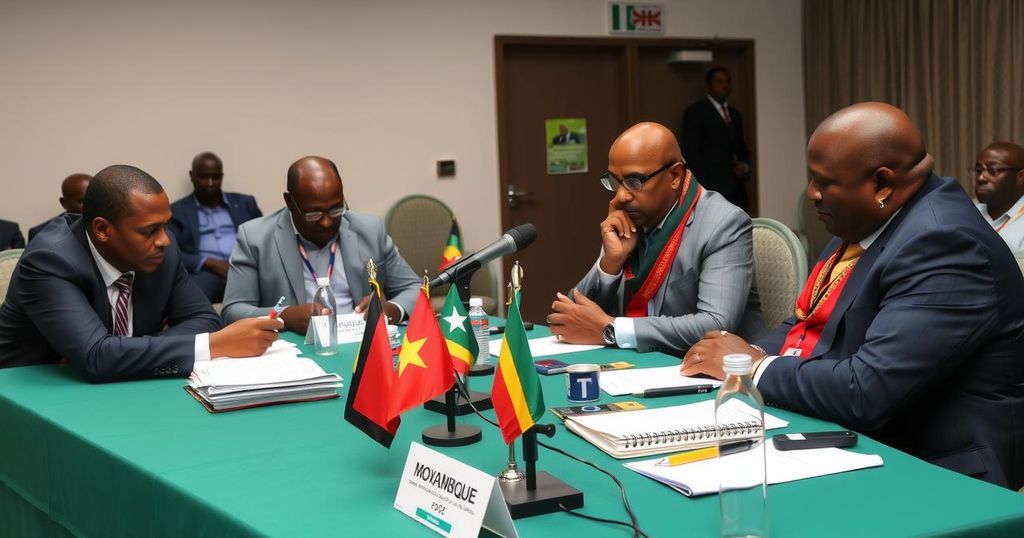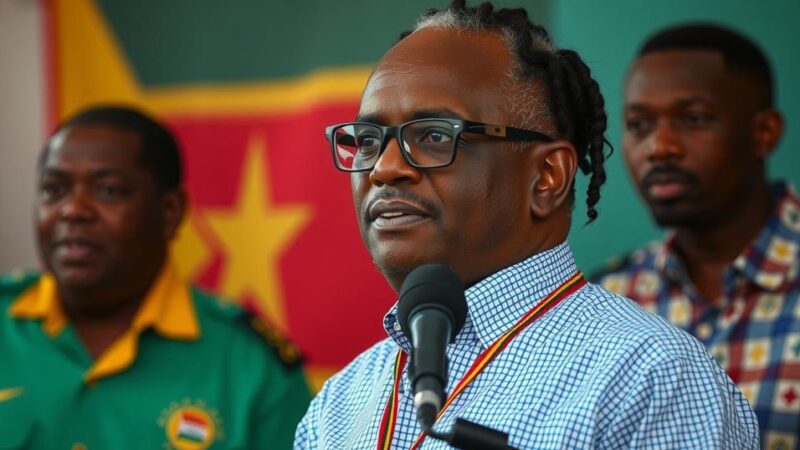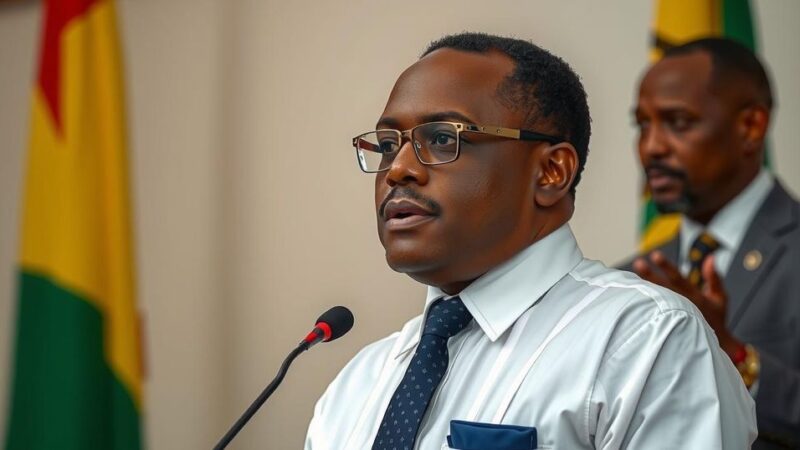Mozambique’s Constitutional Council will announce the validity of election results amidst claims of electoral fraud by opposition leader Venancio Mondlane, who threatens a popular uprising if results favor the ruling Frelimo party. The election has led to unrest resulting in over 130 deaths. Mondlane asserts he actually won 53% of the vote, despite official results claiming he received only 20%.
Mozambique’s Constitutional Council is scheduled to reveal its decision on the validity of the election results on Monday, a development that follows a period of severe political unrest in the country. Opposition leader Venancio Mondlane, who claims that the election outcome was manipulated, has stated that he would instigate a “popular uprising” if the results, which indicated he received 20 percent of the vote, are confirmed. The Frelimo party’s candidate, Daniel Chapo, reportedly secured 71 percent of the presidential vote, a figure Mondlane contests vehemently, asserting that he actually won 53 percent. Amid accusations of electoral fraud and reports from international observers citing irregularities, Mozambique has experienced unrest leading to approximately 130 fatalities over the past two months. Mondlane has expressed his safety concerns, opting to live in exile, and has warned of potential chaos should the election results be ratified. The Constitutional Council’s president, Lucia da Luz Ribeiro, is expected to announce the “definitive results” in a public hearing, which is likely to have significant implications for the political landscape of Mozambique.
The political climate in Mozambique has been increasingly tense, particularly following the elections held on October 9. The ruling Frelimo party has been in power since the country’s independence from Portugal in 1975. The recent elections have been marred by allegations of fraud and irregularities, leading to widespread unrest. The opposition, particularly through the leadership of Venancio Mondlane, has been vocal against what they claim is an illegitimate electoral process. A significant portion of the population is awaiting the Constitutional Council’s ruling, which will determine the legitimacy of the current administration’s election results.
The Constitutional Council’s upcoming decision holds critical importance for the future of Mozambique’s political stability. The stark division between the ruling party and the opposition underscores the potential for increased unrest, especially if Mondlane’s calls for action are realized. As the situation unfolds, the impact of the council’s ruling may determine not only the immediate political landscape but also the broader socio-economic conditions in Mozambique.
Original Source: www.barrons.com







